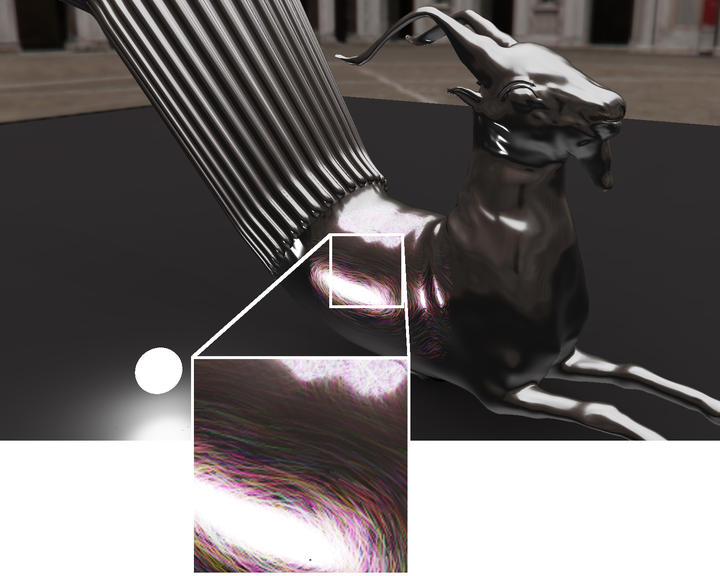
Abstract
The visual appearance of real-world materials is characterized by surface features across many scales and has received significant attention by the graphics community for decades. Yet, even the most advanced microfacet models have difficulties faithfully recreating materials like snow, sand, brushed metal or hair that feature scale-violating glints and speckles and defy any traditional notion of filtering and level of detail. In this work, we address an important subset of such materials, namely metal and dielectric surfaces that are covered with microscopic scratches, e.g., from polishing processes or surface wear. The appearance of such surfaces features fine-scale spatial detail and iridescent colors caused by diffraction, and has only recently been successfully recreated. We adopt the scratch iridescence model, which is known for plausible results in offline Monte Carlo settings but unsuitable for real-time applications where extensive illumination sampling is prohibitively expensive. In this paper, we introduce an efficient technique for incoherently integrating the contributions of individual scratches, as well as closed-form solutions for modeling spherical and polygonal area light sources, and for the first time bring scratch iridescence within reach of real-time applications.
Supplemental Material
Additional performance evaluation
Video
Bibtex
@article{VelinovEtAl-RTWaveOpticalScratches-EG2018,
journal = {Computer Graphics Forum},
title = {{Real-Time Rendering of Wave-Optical Effects on Scratched Surfaces}},
author = {Velinov, Zdravko and Werner, Sebastian and Hullin, Matthias B.},
month = may,
year = {2018},
volume = {37},
number = {2},
publisher = {The Eurographics Association and John Wiley & Sons Ltd.},
ISSN = {1467-8659},
DOI = {10.1111/cgf.13347}
}